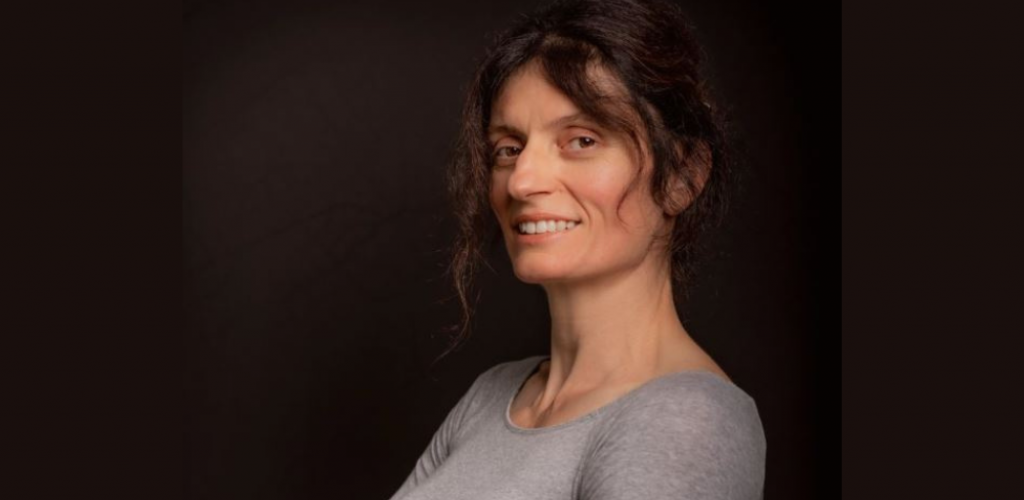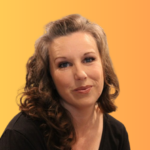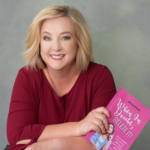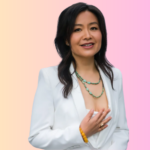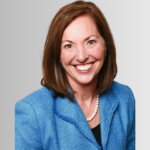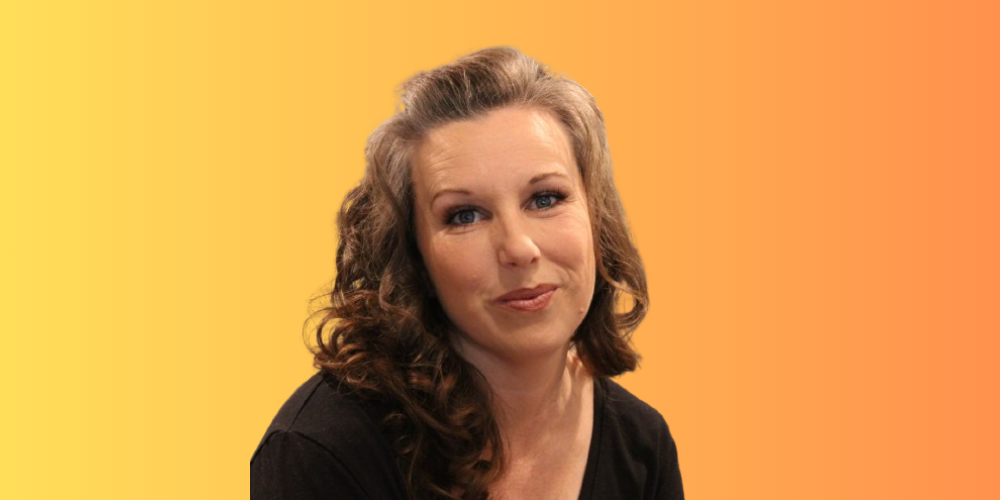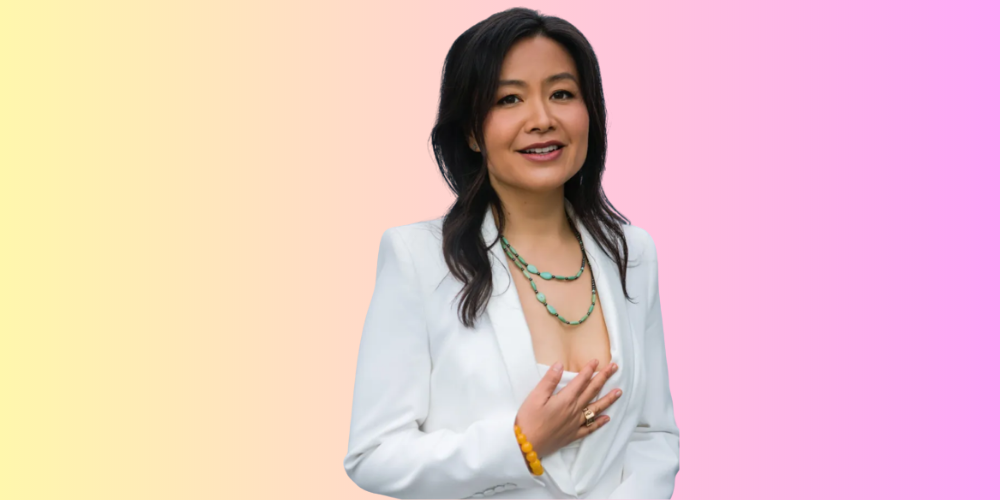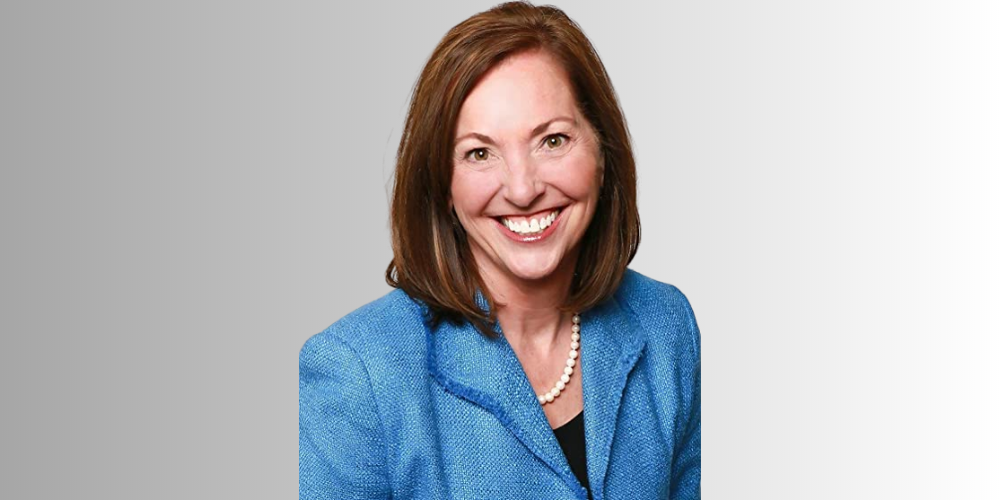Raj Girn: My guest today is Alexandra Dotcheva, the author of ‘It Really Is Simple: A Holistic Approach to Self-confidence A Practical Guide.’ Alexandra struggled with debilitating levels of lack of confidence for over 20 years until she finally decided that she didn’t want to live as a victim of circumstance. So she took matters into her own hands by going on a search for knowledge across many doctrines and modalities, which helped her create a process to build confidence through a holistic approach which she penned into this book that we will be diving into next.
Here is our conversation:
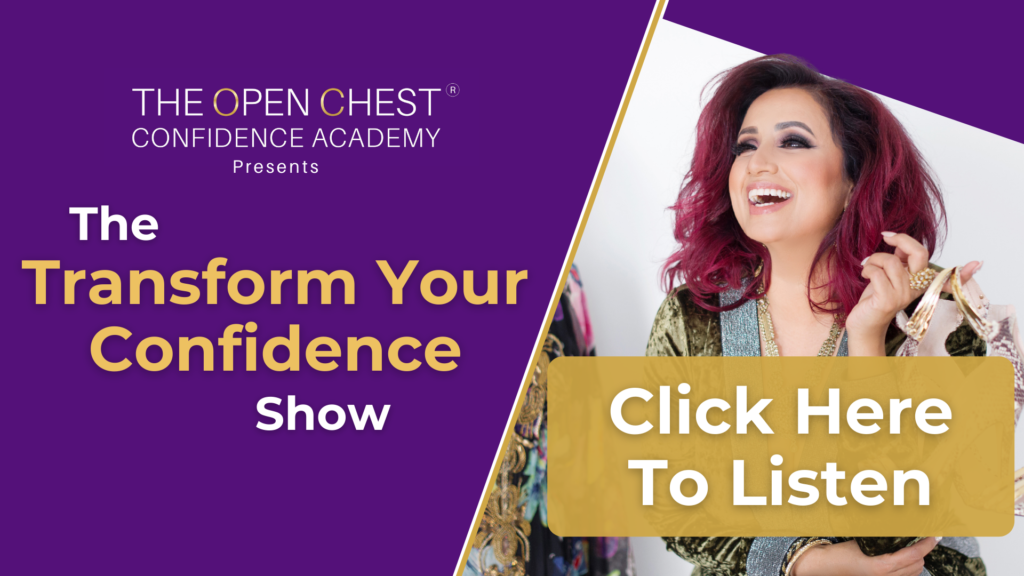
Raj Girn: Please welcome to the show, Alexandra.
Alexandra Dotcheva: Thank you so much for having me Raj. Such a pleasure to be here.
Oh, my gosh. I have so much to talk to you about. I’m always so excited about speaking with a fellow confidence advocate, especially those, who like me, have journeyed from the opposite spectrum to get there. So, Alexandra, here’s what I want to ask you first: Who were you before you started your journey towards the acquisition of self-knowledge? Who was that woman?
That woman was, first of all, she was a child, six year old, who started the violin with the dream of being a soloist or a great orchestra musician. And for 26 years, I was a violinist. Indeed, I earned my bachelor’s degree in violin in Bulgaria. I’m originally from Bulgaria. Then I immigrated to the States in 2000, where I earned my master’s and doctoral degree in violin.
And then in 2006, the market started shrinking for classical musicians in the US, orchestras started downsizing and even bankrupting. And so you got this horrendously competitive world of hungry very, very good musicians. And you competed against between 40 to 500 people for a single orchestra spot. And I realized I really wasn’t competitive enough, much as I had the dream to be a great violinist and I made great progress in the United States. I had a great professor, Kevork Mardirossian, who is now at the Indiana Bloomington School of Music.
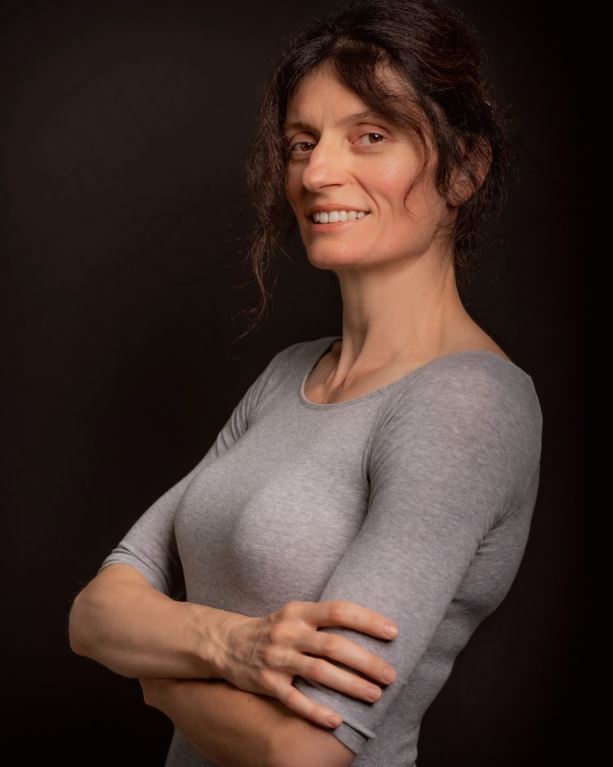
And in spite of my progress in the United States, I kept struggling for a very long time with stage fright. That was my expression of guilt probably for my not very, how to say, that conscious and diligent practice when I was a child, because I always wanted to learn fast to prove to everybody I was a fast learner. But I didn’t really polish the details in my technique. And that lasted for a while because when you’re a child and a teenager, you can be very impatient, even though your parents tell you you have to slow down, you have to really hone your skills very well.
And when I grew up enough to realize that I was sliding behind my peers of the same age, that’s where the sense of guilt hit really bad and the stage fright developed like you wouldn’t believe. But I wasn’t able to analyze this when I was in my 20s until I actually left the violin profession when I was 32 and years later, I was able to look back and see why this happened.
What was my mistake? Why couldn’t I fix it? And it became very clear once I became a nurse and then a real estate investor fighting the same type of fear of failure, but from a different perspective, the perspective that there was no going back and I had to get it right this time or else.
“It became very clear once I became a nurse and then a real estate investor fighting the same type of fear of failure, but from a different perspective, the perspective that there was no going back and I had to get it right this time or else.” ~Alexandra Dotcheva
So what motivated you to want to change this narrative?
For one thing, when I realized I wasn’t competitive as a violinist and my entire world fell apart, there was a viola player in the orchestra, the Sydney Orchestra, where I was employed, and she was also a registered nurse. So I figured this is the profession that will require less than 11 years of college because I had been in college for 11 years at that time. I had defended my doctoral monograph the year prior, 2007, and in 2008, bad things started.
A rumor started going around that our orchestra may go down by bankruptcy. Things became very insecure. Big tensions between the musicians union and the management of the orchestra, which was the business aspect of the whole venue.
And I figured based on nursing, I always wanted to know something about science. I knew absolutely nothing about science because of my specialized music education for 12 years and then the several years in college. So I resolved to learn nursing. It took two to three years to get the degree. It wasn’t a five, six, seven year degree. I felt I can do this. I’m going to read all the textbooks before the classes start. I read the anatomy physiology textbook four times from cover to cover over the summer of 2008 before my EMT class started in September of 2008. I had to learn all the scientific terminology in English. I didn’t know it in Bulgarian, let alone in English. So it took me a long time to read these textbooks. But I did the same with my psychology, my chemistry, my microbiology, sociology textbooks, everything. I read before the classes started more than once.
I replaced my violin practice. From seven to nine hours with the violin, I replace this with reading textbooks for seven to nine hours because I wanted to be leveled with people who are 18, 20 years old, from high school with some science base, and I was 32. Okay, so I nailed all the classes with As and that made me very confident because I knew that my hard work paid off. And that was just the start of the confidence journey, though. That was just the start.
Wow. So let me ask you this. What steps did you take to get from no confidence to self-confidence? I feel like it’s a big question.
I started learning things that I never thought possible for me to learn before and solving problems I really didn’t feel like solving. That clicked together. So when I became a nurse that year, I started my job. It was the year when my orchestra bankrupted. It was a crazy timing. So I had the job waiting for me in the ICU upon graduation, so I started working as a nurse.
Then I switched to a night nurse on the trauma floor. And eventually in 2013, I became a home care nurse. I have been a home care nurse ever since, so I learned a lot about how nurses actually lived, how they worked, extra shifts to cover basic bills, even though many of them have kept better paychecks than I did, as numerous senior nurses get based on seniority, better money.
Yet they were almost always broke and they were talking about it, and they were also many times sicker than the patients that they were treating. So that’s why it started creeping in my mind that, okay, I have to really make sure I’m 100 per cent healthy physically, mentally and emotionally.
First of all, to be able to learn everything else. I want to learn to be financially independent because clearly the job was not the path to financial independence. I thought it would be because as a freelancing position, I had very little money to get by. But with the nursing now you have money, you have a salary. No, look at this. Now my colleagues are broke.
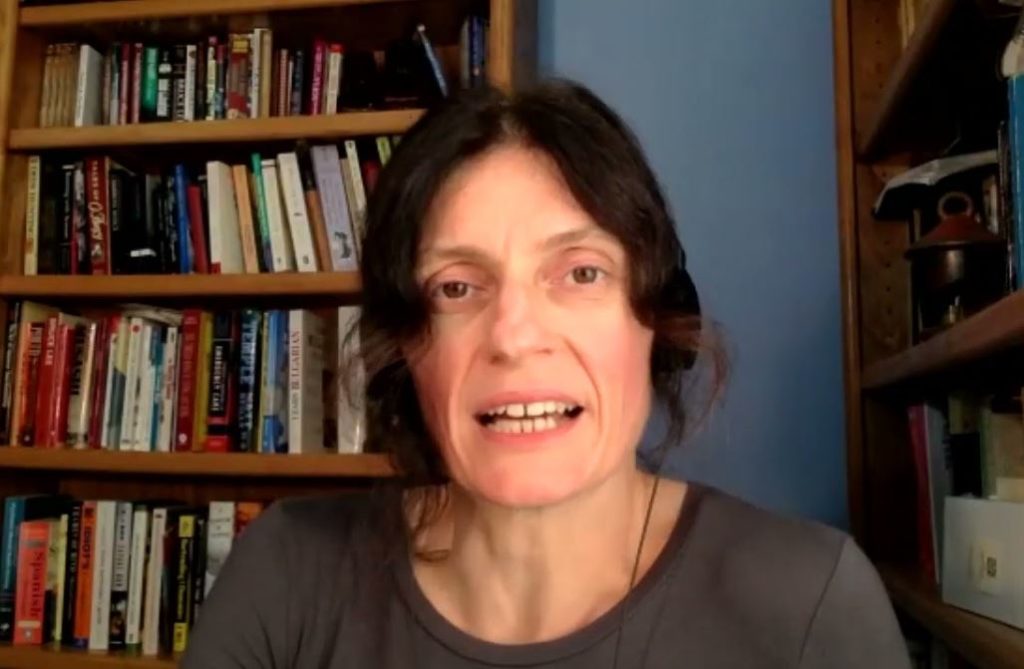
Why is that? The 2008 crisis told me that a 401K was not a way to save for retirement. It was an excellent way to lose your retirement. So then I started learning, investing and built my real estate rental properties and businesses right along with the job. And after that I also became an options trader. I learned how to manage my time to deal with all these three very inspirational activities that I still do to the present day. And we killed our house debt very quickly.
The assets to produce excellent cash flow, which is not job related. So my boyfriend and I, we can stop working at any time we want, but we still want to be useful to the people in the health care system. And the book came because I simply compiled my own system of being 100 per cent healthy, that is perpetually healthy, through integrity in your health choices. Because I have to be an example for my patients, their loved ones, if I want to get any credibility as a health care professional.
Right.
It also encompasses the financial freedom aspect. How I built all the assets. And then you have to start connecting the dots, because if you’re not healthy, you will not have the energy to build everything else. For instance, I copied the investment properties. I’d be painting a house 12 hours a day with a 10 minute break in the middle to eat two apples. You have to have the energy and stamina to do this when you’re constructing an investment property. Just to give you one example, a simple example.
And the other thing is, if you are not healthy in the United States, you have to know that the health care business is the most profitable business in this country and first cause for personal bankruptcy. So if you get crazy about your financial growth, but you neglect your health at the same time thinking, okay, let’s build this in a couple of years, then I’ll take care of my health. No, you can get very sick and that will set you back dramatically financially in your plans.
So you need to take care of all the aspects of life that are super important. And for me, to put it very simply in the book, I divide it into five aspects for the reader.
We’re going to get into that momentarily. But let me close up this part of our conversation by asking you a question that I feel is really important for me personally and I know for everyone watching, listening or reading this. What does confidence look like for you today?
For me, I’m an expert of my own life. I have full control, independence over all the aspects of my life that I want to have control over, to be a holistic person, not dependent on others, to be fully self reliant with my own integrity and honesty to myself, and then being able to help others with my example. That’s confidence.
“I’m an expert of my own life. I have full control, independence over all the aspects of my life that I want to have control over, to be a holistic person, not dependent on others, to be fully self reliant with my own integrity and honesty to myself, and then being able to help others with my example. That’s confidence.” ~Alexandra Dotcheva
You know, I feel like you’ve answered this next question that’s coming into my head, but I’m going to ask it to you anyway. How has stepping into an owning your confidence mantra changed your life?
Oh, it changes everything. But it’s a two way process because you have to go through the challenges. You need to set the goals for yourself, including the goals that you didn’t think possible, and you start doing one by one, and then the confidence grows. And then that prompts you to set more goals and challenge yourself even more. It’s a very interconnected mental system.
Absolutely. I want to dive into the book, but before we do this, a couple of concepts that I want to get your thoughts on. Before we get into it, I want to first of all remind everyone what the title of your book is.
‘It Really Is Simple: A Holistic Approach To Self-confidence, A practical Guide.’ So first of all, as we get ready to dive into the book, I want to ask you for all of those people that aren’t really familiar with these terms. What does holistic mean? How do you define that?
Holistic is something that you take into consideration all the parts of the whole, but the parts themselves are defined by the whole. And I’ll give you a very simple example to help the listeners with the book. I have discussed health, spirituality, career, finances and relationships. To me, these are the holistic components of life.
So you have to absolutely perfect these five components in your life, and then you have a whole life that is full of confidence and integrity and you are comfortable and happy in your life. Does that make sense?
It makes total sense. So to encapsulate what you just said, what is holistic confidence? Your interpretation of that.
I’m confident that actually I’m choosing the correct relationship is the right relationship for me. I’m confident that my career aligns with my ethical principles of helping people and learning and growing myself as a professional and confident that my finances are such that I don’t have to rely on my job should I choose not to. I’m confident that my spirituality is such that I find joy in everything I do during my day.
I allow myself wisdom, to see through the frustrations of the day, which is a process. But I’m a heck of a lot better now than I was 10 years ago at it, and I’m very confident that I’m 100 per cent healthy. At age 46, you see me with minimal lipstick, no makeup whatsoever because of my diet, exercise and detox regimen. And that’s a huge part of my confidence as well.
Absolutely. It’s all the pieces that make us who we are and what makes us who we are is indicative of how we feel about ourselves. So I want to ask you this from your experience and research: Can somebody build confidence without factoring in the holistic component that you just talked about now?
They can, but if they’re smart enough, they realize that they’re missing out if they only prioritize one aspect of life and neglect the others. It won’t be holistic in my opinion. In my experience, there are people who tend to obsess over certain things and they’re happy with it. I was not going to be happy though, if I constantly prioritize on my asset building and neglected my relationship with my loved one because he wouldn’t be happy and he has been an integral . . . We are a team, right?
So you have to get him, the partner, that is willing to work with you and you’re willing to respect their goals and you mutually work together on your growth. There are all these people that work, work, work, work with the family left behind. The health is left behind. The priorities can be wrong on many levels. If you ignore other important things that you may not see as important right now, but years later, you will regret that you neglected them because now things have gone out of whack in your health and you have to pay all these health bills.
“The priorities can be wrong on many levels. If you ignore other important things that you may not see as important right now, but years later, you will regret that you neglected them because now things have gone out of whack.” ~Alexandra Dotcheva
And forget the health bills. Let’s say you’re a multimillionaire. You can pay your bills. But what about the time consumption? Going to doctors appointments and tests. Time is your most valuable asset, right? So you’re missing out on building everything else because now your health is in the ditch. Everything is very well connected. So I really think, based on experience and what I see with my patients, the three most neglected aspects are health, money and relationships. And people can really set them up straight themselves because we are the only ones who have the power of fixing our life and cleaning our house.
But it’s very hard to convince people sometimes that this is the case and let them take responsibility.
Yeah, absolutely. But this is why you’ve written a book about it. So let’s dive into the book now. The book is a self-help type of guide book. I love those types. Those are my favourite types of books. Let me ask you this: What journey do you take people on in the book? Alexandra, like what you spoke a little bit about, the different tranches that you focus on, what’s the journey that they’re going on as they work through those?
First, I tell them a little bit about myself, why I wrote the book, what brought me to the decision to write this book and my own story so they can see my struggles. And I’m a late starter in life. I hit my mid-life crisis in my thirties and it was difficult. So anybody who wants to change their life, they can do it. That’s the main message of my story in the book, in the first chapter. Then I take them through the process of how to prioritize appropriately, set priorities with specific goals and deadlines instead of some random ideas that their brain cannot catch on anything and actually create a process for completion of the goal. That’s a problem, right?
Then I take them on a very long journey on how to solidify their health from a dietary exercise and detox perspective with the rationale why you really need to consider this very seriously in your life in an increasingly polluted environment, including food and water. Everything around us. Cancer is a trillion dollar industry. Very fast growing industry. Profitability of diabetes, type two. I really rip diabetes type two apart in the book because I just see it so often and it’s spectacularly profitable in the United States. They keep patients diabetic for decades. When diabetes type two is completely reversible condition because it’s manmade and it can be man-unmade.
So the health journey is long because as a nurse, of course, I’m biased. I’ve dedicated five chapters to health. Then I dove into spirituality and then into career. How to select your career models for career. How to examine your motives and purposes for learning. Then the financial journey is how to invest your hard earned money into cash flowing assets that will make you perpetually wealthy assets that even if you die today, will keep producing cash for your generations. It’s not like a job. If you die today, your job will not be salary to children, but with assets you can secure the future of your loved ones. Should anything happen to you.
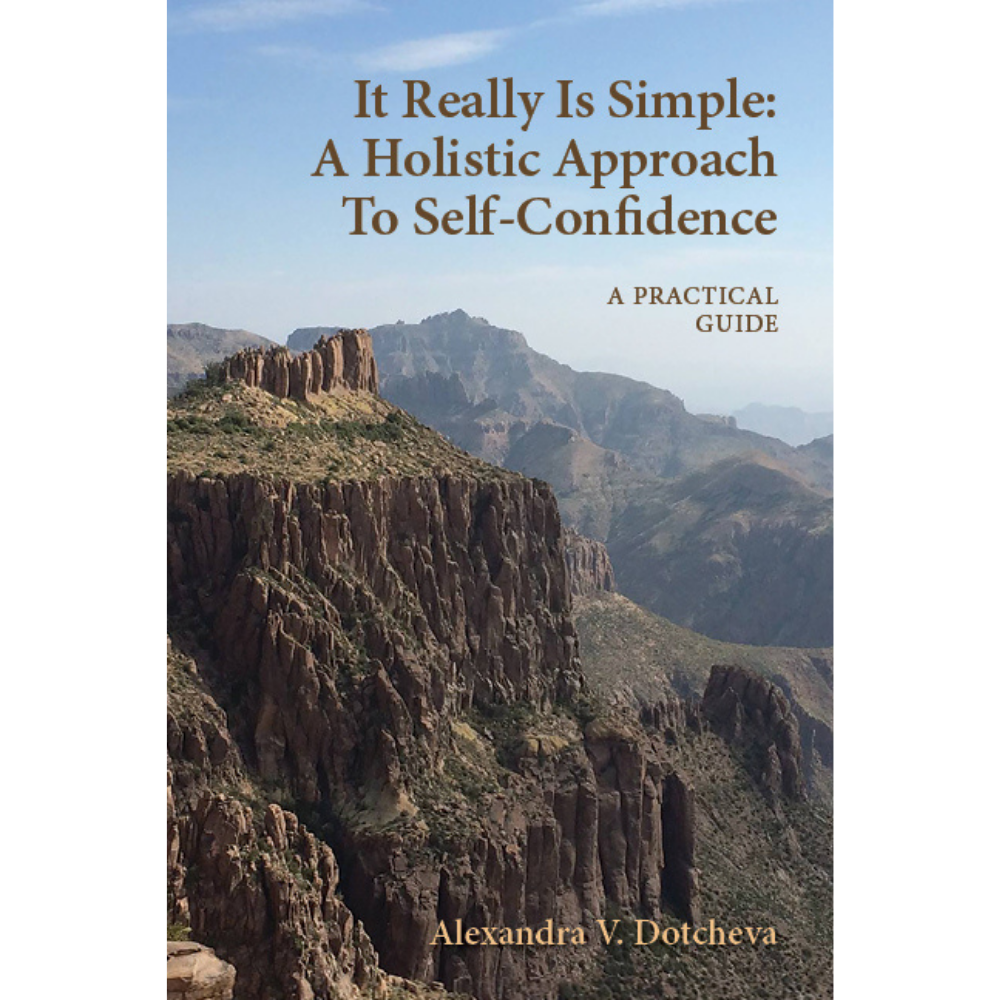
And you can secure your own future if you decide that at some point you don’t want to work anymore because either your employer is asking you to do things that you find unethical or you just want to pursue a different venture in your life. And last but not least, is the journey through a relationship choice. This very important journey. I mean, we also found ourselves with people, with think having multiple friends is wonderful. Well, not so much in the influence through the wrong way, even if with the best intentions. And that’s a very important discussion. And then I think going through some exercises to build self-confidence, the concept of lifelong learning, challenging your brain.
Say spirituality has two components. One is the purification of the mind through meditation. The other one is inspiration through learning. Inspiration is through getting influenced by books or people who really inspire you to create, make you create and dream for yourself and set awesome goals. And then the lifelong learning is the brain’s fitness strategy. So I have this whole spiritual concept of the brain’s health that mirrors the body health, and then they unite together. And all of these components are really connected to each other in a way that, at this point in my life, I can’t see ignoring any of them if I want to be really successful and happy.
Absolutely. I’m really curious about one thing. First of all, this book is something that I feel everybody needs to get their hands on. Does it matter what phase of life they’re in? Does it matter what their motivating factors are? What their value system is? I feel that everybody needs to look at self-confidence from a whole perspective and then have the tools and the resources to be able to build that for themselves in whatever stage of the journey they’re already on because they’re all on a journey of some sort. So that’s the first thing that I want to mention to everybody.
“Everybody needs to look at self-confidence from a whole perspective and then have the tools and the resources to be able to build that for themselves in whatever kind of stage of the journey they’re already on because they’re all on a journey of some sort.” ~Raj Girn
Really, this book sounds like something that everybody needs to get and something that I feel we need to teach all future generations to know how to do. We’re not taught these things. That’s the thing. We’re not taught these things. And it’s interesting because even the school education system is a business. You just mentioned that the health care industry and infrastructure is a business. So is the school system. There’s always a currency and monetization associated with what they’re teaching you and what they want you to do with that.
And the most important things that we need to learn in order to build holistic confidence within ourselves and within everything that we’re doing in our lives, because everything flows from that, is not taught. This book just sounds fascinating to me. I really feel that everybody needs to go grab the book. Before we carry on, Alexandra, because there’s a few other things that I really want to be able to touch upon. Where can people go to go pick up the book?
The book is purchasable on my website www.holisticselfconfidence.com. My Facebook profile Holistic Self-Confidence also leads to the website. As far as international buyers buyers outside of the U.S. I have a page dedicated to these people on the website, so the e-book is very easy to download. From the shop page of the website, you need an epub file reader on your computer, which is freely downloadable on the internet. The physical copy is still only available in the U.S. because of the shipping costs to countries outside of the U.S. So we’re trying to figure this out right now. They can contact me on an individual basis. We can ship them the book.
But we may integrate some options on the website for buyers outside the U.S. that are in English speaking countries. But again, I have to warn you, I checked already some of the shipping prices are more expensive than the book itself, and the e-book is just a fantastic solution for people who live outside of the United States. You can click on all the chapters. You can bring it to the chapter that is of interest. It’s a very nice addition and definitely a great solution for people who are outside of the U.S. right now.
I love that. Again, the website.
The address is holisticselfconfidence.com.
Love it. So I want to ask you this. There are so many different modalities and things that you went into studying. Talk to me a little bit about all the things that you came across or the knowledge that you consumed and all the different things that you wanted to say in the book so that people truly would go on this holistic self-discovery journey to build self-confidence and empower themselves.
How did you know what, from everything that you consumed, would make sense for people to put into action steps to go on that journey? Because that’s the hardest part when you’re doing research for a book. Talk to me a little bit about your process.
It’s funny you ask that question because I think the most sellable aspect of the title of the book is A Practical Guide, which really shows when people presented that the practical guide is really the practical advice I can give people how they can very easily start on the health journey, very easily build a spiritual foundation, easily start on career choice. It doesn’t sound easy, but actually if you think about it, it’s not that hard and then easily understand aspects of investing to grow your wealth and then easily select relationships that has to be practical, it has to be accessible, an idea that is understandable to the person. And then they can integrate that simple idea in their own life situation and build from there. Because my experience will never be like yours. I completely understand that.
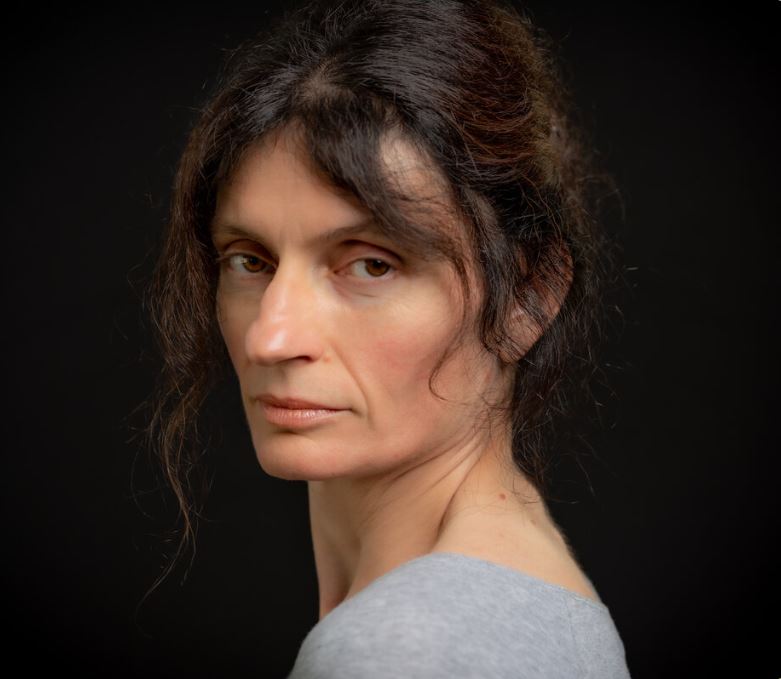
So you have to have a simple system. So simply put, when you create a goal or a dream, you see a dream in front of you. And you have to figure out, honestly, without other people’s opinions which are all honest, naked self, where am I right now in relation to my goal or dream? What is in the way? So the things that are in the way could be your own self-limiting beliefs, habits that need to be changed from. Negative to positive habits to accomplish the goal or dream. But you also have to see who is standing in the way besides you. Usually it’s mostly you, but sometimes there are other people. Can you convince these people to cooperate with you? Can you put them away from your life if they’re actively sabotaging your efforts? Can you get yourself away from them if you learn a couple of marketable skills and become financially sustainable by yourself and then build your goals? There are so many things, little things to think about that people are afraid to think about. So that’s the practicality of the book. I challenge you to think in simple ways to build a big, complex system of your life. That’s where you start. But first of all, it has to be integrity with yourself. And it’s very hard. I recently actually posted a blog post on my website. I have only seven posts so far because I started it recently and I don’t go for quantity, I really go for quality.
So every two weeks they say so I will start post. But this post I really focused on why it was so hard for me to build my goals when I started on the journey. It was the hardest thing, especially when I dove into real estate investing. I had to read books of tremendously successful people to get inspired and encouraged. And these people get different systems and methods and stories, but they all had one same something in common. They insisted that you wrote your goals down and set deadlines. And that seemed completely impossible, because, for a while, I didn’t believe realistically that I could accomplish my dreams and goals because of my 20-year-old self-inflicted history of lack of self-esteem or self-confidence.
That’s what I had to confront. To put the goals into paper. Then they seemed stupid. Why does this seem stupid? Oh, wait, they are not my goals. These are goals that may be approved by others. We’re still playing by other people’s opinions, but that took a couple of years to understand. So with the book, I am really hopeful that people will take less than two years to go through that mental garbage and put it away and start clean. It takes different time for everybody, and that’s perfectly fine. So long as you’re willing to do it right.
That’s the whole point. And I always say this, knowledge without action is cheap. You need to action the knowledge. Otherwise, what’s the point of acquiring it? Who is the book for?
Well, that’s also a great question, because originally it was for people going through a mid-life crisis or at a big crossroads in life like I was. But now, with all the changes in the last three years, many younger people really go through a mid-life crisis in their 20s. But now at all the changes and job opportunities lost, new opportunities coming along the way, people will have to adapt to changes even faster than my generation or the generation before mine.
So this book now all of a sudden this audience ranges from I thought it was between 30 and 55 years old. I would include the people in their 20s who even if they can’t exactly relate to a mid-life crisis or crossroads in life quite yet, if they get the idea what this looks like, maybe it won’t be as scary and frustrating for them if they actually come to that point in their 30s. It is my hope and wish because it’s hard. It’s really hard.
And I’m not suggesting that you necessarily have to avoid a crisis because crisis really makes us learn. However, if I can prepare you just a little bit. I’ve done a good job in the book.
Absolutely. And life always throws us curveballs, right? There’s always going to be something that comes at us. But we had no idea that we would need to face that. To be able to do that.
There is a very good saying. Life is what happens to you while you plan your life.
I love that.
I hate it, but it’s true.
Can you say that again?
I didn’t say that. I read it somewhere: Life is what happens to us while we plan our lives.
Oh, my gosh. You’re so right. That’s something I need to write up on my whiteboard to remind myself, because I’m a huge planner. Oh, I love that.
Yeah, exactly.
It’s definitely for people like me. I want to ask you this: What feedback have you gotten from people who have followed the journey of the guide to create holistic confidence? Like what is some of the feedback that you’ve gotten from people and what kinds of people are they?
Okay, I have had excellent feedback so far. Excellent feedback. So I have gotten feedback from musicians, from nurses, from people who are computer programmers, from martial artists. I was a martial artist for 12 years. That’s another story, but a great self-confidence builder.
You are something else, lady.
Well, I needed the self-confidence, so I did everything possible to get it. But excellent feedback because people write me back and say your book is absolutely inspiring. We started creating goals as a family. That’s the big deal with families because teamwork, everybody on the same page.
Some people change their diets. Or started going to the gym finally. And as far as investing, I had several investment mentees who already knew what to expect from the book, but they said that it made even more sense now that they’ve been reading it. So the feedback has been excellent so far. Thankfully, I put all my passion in this book.
Of course.
It was a pleasure to write it.
And I feel that energy as you’re talking. I mean, partly based on your experiences and partly based on accumulating so much knowledge through your passion and your drive to want to know how to get to that goal that you were looking to accomplish, which is holistic self-confidence.
And the person you become while pursuing your goal. That’s the real mastery.
That’s the real, real nugget of wisdom as well for everyone, to just make sure that you don’t lose sight of why you’re doing this. So important.
So I want to ask you this, Alexandra. We’re living through very challenging times. Times that are constantly changing at warp speed. How do you see people can access your process, as detailed in the book, to help them navigate through these fast paced times?
Well, that all depends on their personal determination and understanding of how challenging their life situation is and not expecting that things will just magically fix themselves for them. I have come to believe that people have always lived through very challenging times. It’s just that we didn’t have the information resources to hear everybody’s complaints about their situation.
Right.
And while it’s true that it’s hard to get rich if you start very poor. That is also an excuse rather than an argument, because we have seen tremendously successful rich people starting extremely poor.
Right.
So all throughout the centuries there are examples of that, Rockefeller, Carnegie, you name it. So many people. And it’s a shame for us if we don’t take advantage of the current technology and opportunities, because now more than ever, there are opportunities to create wealth. It’s just that the information becomes so overwhelming because it’s the information age and sorting through the information is what is very daunting for people and they give up before they’ve even started to make it.
So how can your book help with that?
I give them specific examples of what I did and how I encouraged people to search, fail, search again, analyze. It’s a process that you have to go through if you really want to gain detailed knowledge about the area that you’re interested in. And I also strongly suggest you get interested in more than just one area, because some things get less favored by the market over time. So if you’re building assets, you need to dig into a couple of asset classes to see how you can build on two or three of them.
Because if market conditions become less favorable to an asset class, then you rely on the other class that you’ve invested in for your income and then things can switch. You can have a wonderful time when all the assets are flourishing. It’s just a never ending process, but you have to understand it in order to control it and not be afraid of risk in order to increase your risk tolerance level by managing highly profitable assets at higher risk levels. It’s not something that schoolteachers are going to help if you take a financial class at school on a university because your professor is relying on a salary to make ends meet, so you need to learn from a self-made millionaire.
That’s where I learned from and I became extremely wealthy and so much better than if I didn’t choose to pursue investing in addition to my nursing career.
Absolutely. You know, it’s fascinating to me that even though money isn’t what motivates you today, as it would have done in your earlier days when you were seeing how people weren’t able to save money in the nursing career. And the reason I say this is you’re still a nurse. You’re still doing that.
Yeah. My job doesn’t bother me anymore. I don’t feel such a big urge to quit it, because when you only rely on the job for your finances, it’s like you’re trapped. But when you have seven or eight other streams of income in addition to your job, then the job doesn’t bother you so much anymore, and you can pursue it on your own terms. Still being very respectful to your peers and leadership, but you’re better able to set your own conditions.
“When you only rely on the job for your finances, it’s like you’re trapped. But when you have seven or eight other streams of income in addition to your job, then the job doesn’t bother you so much anymore, and you can pursue it on your own terms.” ~Alexandra Dotcheva
For example, I work full time, but I work three 12-hour shifts on the weekend. The rest of the days I was writing my book. I manage properties if I have to help a resident of any of my properties or anything. I love managing my own business. I don’t trust anybody with my money and the only person I trust is my boyfriend of 14 years and he’s very trustworthy.
But that’s just it. The two of us have our little duties and obligations within all of these businesses, and it has worked great. Well, of course, we have accountants that protects us. You can’t money without that when you have businesses, but the more you grow, you really have to realize how much you have and determine for yourself and decide how much of your money you want to spend on accountants, lawyers or insurance agents.
Because the wealthier you get, the more of your wealth goes to these three entities. So keep that in mind because it can become another form of enslavement, opposite of the job. And to everybody this is different. But to be able to confront these decisions, you need to gain the knowledge and build the determination to learn all that. Then be willing to spend the time and make some mistakes. Make the mistakes early with less money than later. So there are these things to consider.
Absolutely.
The book talks about that extensively.
If you had access to this book way at the beginning of your career, how do you feel it could have possibly changed your life?
Nice. It would have been nice. I think it’s very nice because it would have been good, I think.
Yes. You probably would have gotten still to where you are today, but perhaps quicker.
A little bit faster, I guess. Yeah, because I’m very self-disciplined and very organized. But I would have gotten regardless. But with the book, I think it would have been easy because it just has a lot of practical advice as far as food detox choices, because people were starting to feel that, well, here is exactly where to start. And I haven’t recommended a single thing that I don’t do myself.
Right. And that’s what I love.
Yeah. Otherwise, I don’t even think I can just say people, hey, do this. And I’m doing something completely opposite.
That’s right.
Okay. But if I had this book. 15 years ago. It would have been nice.
Yes. Oh, my God. I hear you. It’s like I feel like I want to buy the book for everyone now. Especially the kids, the new generation, right Alexandra? I mean, the interesting thing about the newer generations, like the zoomer generations, etc., is that they’re not as held to ties of conformity and all the things that you and I were really grown up with fitting into a box that belonged to someone else. So can you imagine if they had this book? Because on the other side, although they have more of a freedom mentality, there still needs to be some understanding of how to use that to your benefit. You still need the tools.
You need some experience in order to understand what to conform to and what not to conform to the values based on experience. And when you say you want to buy the book for everybody, that’s very nice of you. But I think people should invest in buying their own books.
They’ll value it more.
Exactly. And they’re much more likely take action. For example, before I bought my investment real estate class to learned how to invest in real estate, I read six books by the person who sold me that, plus a self-made millionaire.
He earned my trust through the books because the books are very inexpensive and you start reading and then say I want this person to teach me how to invest in real estate because I really trust them. It was the best money ever spent. But I spent the money, which was not little money to learn to invest. And then I took action because I could spend the money. If I had kept reading cheap information or free formation, I would still be sitting here and not even talking with you because I wouldn’t have written the book and taken actual steps on everything else I did.
“I spent the money, which was not little money to learn to invest. And then I took action because I could spend the money. If I had kept reading cheap information or free formation, I would still be sitting here and not even talking with you because I wouldn’t have written the book and taken actual steps on everything else I did.” ~Alexandra Dotcheva
Such a wise words.
I mean, it’s frustrating to people who don’t have much money. But you’ve got to understand, you need to prioritize, to invest in yourself. So buy the book, the e-book is $9.99. That’s not expensive.
I mean, absolutely.
The paperback is $25.95 in the U.S. So you can buy the books. I say buy the book because that’s how you invest in yourself and you buy more books and more books because my book is not the only book that can teach you good things. But the good thing about this book is that it integrates all these aspects health, spiritual, career, financial and relationships.
And then you can branch out to specialized literature about all these five aspects. But it can be more confusing because there’s just so much to know. This is a very, very simple start guide, and trust me, it works because I’ve done it for over 20 years now.
I love that. Alexandra, is there anything that we haven’t touched upon about today’s show topic? And let me just mention what that is again: building self-confidence through holistic practices that fit today’s fast paced world. Your thoughts?
I wanted to actually address one of your comments that you made earlier in the conversation when you said people go through college and college doesn’t teach you this and doesn’t teach you that. I don’t know how but I know that in the other countries, college is more accessible than it is in the U.S. right now. The education system here is ridiculously overinflated and in many cases it won’t guarantee you that you’ll get a job for the next two, three, four or five years. Yet the system wants its money back from the loan that you purchased.
And now there is this perverted understanding of nobility to forgive your loans. Well, no. You take a loan. That’s a responsibility, right? It’s the same thing when you build assets, you can’t just expect your loan to be forgiven because you made an irresponsible decision at some point in your life. And that’s why I personally didn’t pursue a teaching career as a professor in the university, as a violinist, even though I had the doctoral degree, because what do I tell my students? It might take 10 to 15 years before you score a job. Well, that’s not fair.
College education is nice. It gives you some validation if it’s a profession that’s in demand. And most professions in demand are the jobs that most people don’t want to do. And if you’re one of those people, you will end up paying this over expensive education on a degree that you will not be able to apply yourself. And it will be a big waste of time and money and disappointment. So if I can prevent you from doing that, I’ll be very happy for you to pursue various avenues of life, not just what a clichéd understanding of the easy way out, because there is no easy way out. When real life is nothing like college, which is why people perpetually stay polished now for as long as they can.
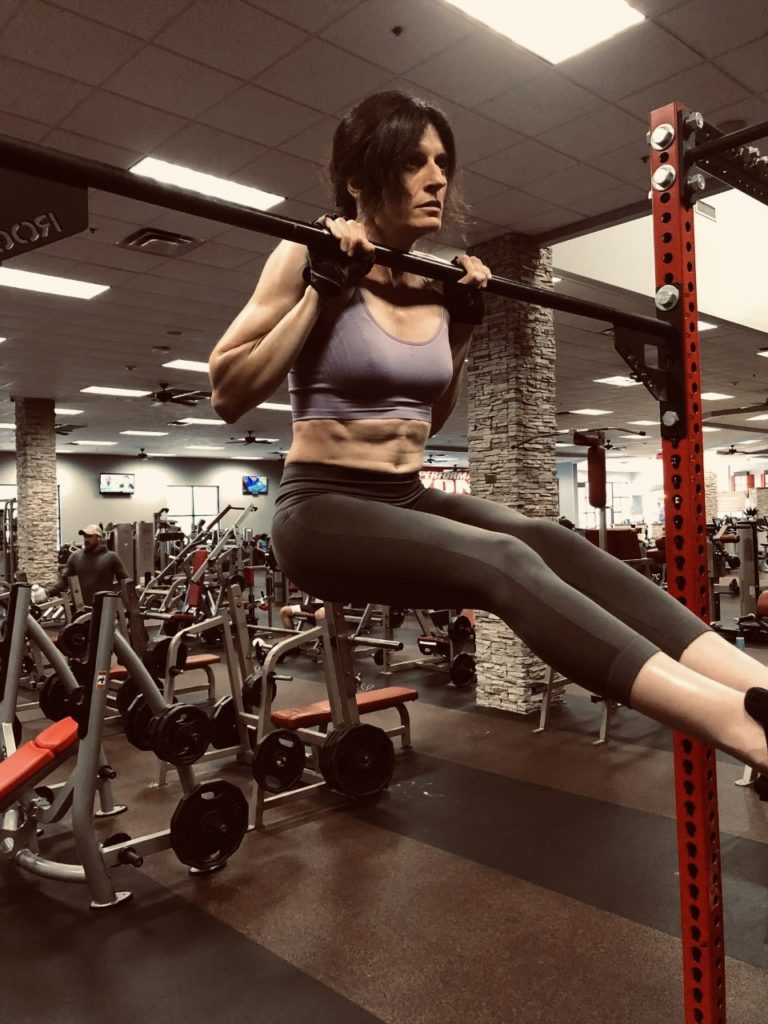
Any final thoughts that you’d like to leave everyone watching, listening and reading this? Some words of inspiration from your life, perhaps.
I can tell people that I’m very easily accessible for conversations should they have any questions? Again, through my Holistic Self-Confidence Facebook page, I have a contact form on the website that comes to my email if they have any questions after the reading or while they read the book. I’m pretty approachable and I’m willing to engage in a meaningful conversation. I have consulted people. I do consult people. They want to learn better time management. That’s on an individual basis if they’re interested. I mean, after this book, you really shouldn’t have to. Don’t make me write another book, please.
But let me ask you something here, because, you know, people learn in different ways. Some people like to read and make their notes and read things over and over again. And that’s how they absorb.
Other people need to have that two way process. So the fact that you offer the one-on-one I think is very valuable for certain types of people and how they learn. So with that said, if anybody wants to tap into that or know more, where do we send them?
Use the contact form on the website.
And again the website.
www.holisticselfconfidence.com. I can see what your goals are and build an individual based plan. I don’t like protocols. I don’t put people into boxes and protocols. Because if I see you have specific goals and what is impeding you to their accomplishment, I can help you with that. And you still take full responsibility about your life and everything, your goals into whatever you name it. Because it is your life. I can’t shape your life for you, but I can see where there are some gaps. We offer you solutions to these gaps for your situation and we go from there.
And you still have to action it. It still has to be your decision at the end of the day. Right?
Can’t do your pull ups for you. Can’t do your dips for you or your 12 mile bicycle cardio for you. Can’t do that. I can only do it for myself.
Absolutely. Oh, my gosh. Alexandra, thank you so much for coming on and sharing your story and your philosophies. I know that this is all going to be super relevant for so many people. I mean, literally anyone out there who is looking to better their course of life and to have more control and more happiness and all the things that seem in today’s fast paced life to be almost elusive.
But clearly they’re not. There are ways that these things can be honed in and they can be understood, they can be learned, and they can be actioned into the life that you want to live. Alexandra, thank you so much for coming on and I really wish you tremendous success with the book. I really, really do.
Raj, likewise. It was a great pleasure to be on your show. Thank you so much for having me and I hope that I can be helpful to your listeners.
You definitely have been. Guys, as always, I really hope that you got some real value from today’s show and will share everything that we talked about today and this episode with anyone that you feel really needs to get this, the learnings and the insights that Alexandra has been sharing and please share the information about the book.
I really instinctually I got to really feel that it’s going to help every single person that comes into contact with it. I also hope that you’ll subscribe to my YouTube channel at The Open Chest Confidence Academy so that you never miss an episode and we drop them every Wednesday.
You can also download ‘The Transform Your Confidence Show’ if you prefer to listen podcast platforms everywhere. Just go and hop over there and download it. And you could also do the read because we also take all of our podcasts and we transcribe them into written format. Just hop on over to the website at theopenchestconfidenceacademy.com/media/podcast. And I’ll see you next week for another invaluable episode packed with insights and learnings to help empower your work, your life, and your spirit.
Take care. You know that I adore you and I can’t wait to see you next week.



